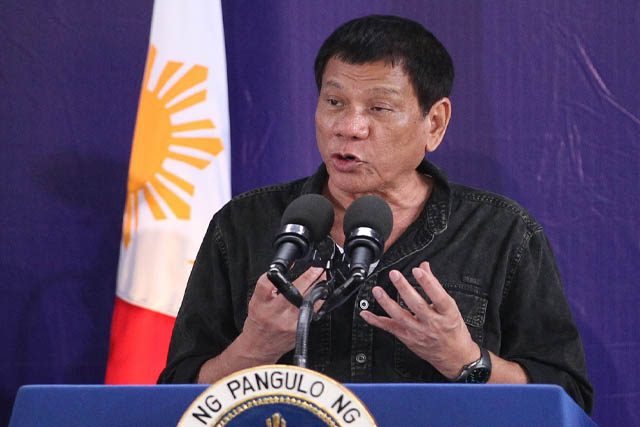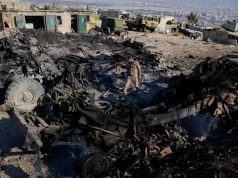MANILA, Philippines — The thousands of deaths associated with the government’s war on drugs and President Rodrigo Duterte’s assurance that soldiers need not worry about rape earned special mention in a United Nations official’s lament that “human rights around the world are currently under major attack.”
“In Europe and America, but also Russia, Philippines and elsewhere, the backlash against rights tends to take the form of populism,” UN Assistant Secretary General for Human Rights Andrew Gilmour told the leadership summit of the UN Associations of the United States of America last June 12.
The speech is posted on the web page of the Office of the High Commissioner for Human Rights.
Gilmour spoke of the “serious backlash, one that takes many forms but all of them counter to the values of rights, freedoms and tolerance,” both from governments, terror groups, as well as “those innocent people –huge numbers — killed in the name of counterterrorism.”
“Populism and intolerance are still very much alive,” the UN official noted, stressing that the attacks not only target vulnerable groups but “also international institutions” like the world body.
“This form of populism tends to be anti-foreigner, anti-minority, seeking out victims to blame, usually from the most vulnerable groups in society,” he added.
In countries ruled by populist leaders, the assault on human rights “is often demagogic, cheap and xenophobic, with leaders and the media claiming to speak ‘on behalf of the will of the people’,” because such leaders “don’t like independent judges, free media and international institutions — because all of these dare speak up for rights and challenge the alleged ‘will of the people’.”
This, he said, is evident in “countries like the Philippines, where thousands of people — both petty criminals and bystanders — have been mercilessly gunned down in the streets and their homes by state agents, with a President who ghoulishly celebrates their murders, boasts of having personally participated in some of them, and encourages his soldiers to rape village women.”
Although attention has mostly shifted from the drug war deaths — which some quarters estimate at a thousand monthly since Duterte took office a year ago — to the current fighting between government forces and extremist gunmen in Marawi and martial law in Mindanao, the daily killing of drug suspects in both police operations and in street executions has continued unabated.
Gilmour also acknowledged setbacks for human rights in Europe, including the United Kingdom where he is from, where “since Brexit, there’s been a worrying rise in violent hate crimes against minorities and foreigners,” and in the US where he noted “the vilification of entire groups — such as Mexicans and Muslims — and the totally false claim that migrants commit more crimes than US citizens,” as well as “talk from some leaders about ‘liking torture’, believe it or not, and claiming that ‘torture works’,” among others.










